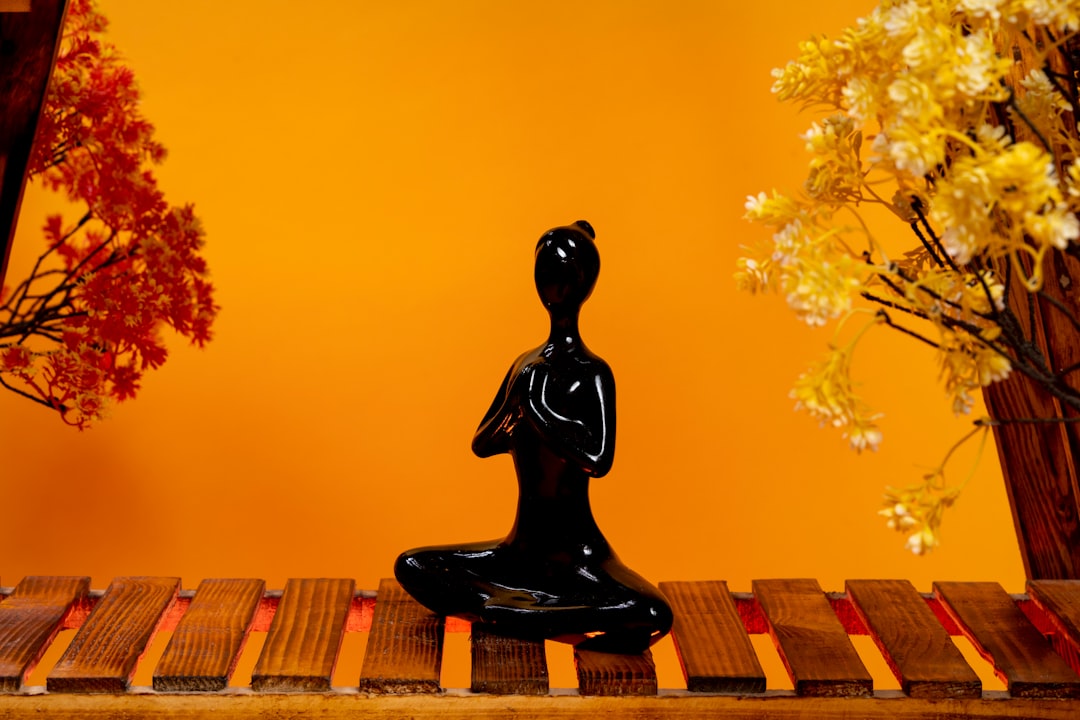Starting your first week of meditation can feel like stepping into uncharted territory. I remember sitting down for my very first session, wondering if I was doing it "right" and questioning whether my racing thoughts meant I was failing somehow. The truth is, your first week of meditation is less about achieving perfect zen and more about showing up consistently while your mind and body adjust to this new practice.
What I wish someone had told me before I began is that meditation isn't about emptying your mind or reaching some blissful state immediately. It's about building awareness of what's actually happening in your mental landscape, moment by moment. Some days will feel easier than others, and that's completely normal.
Day 1: The Curious Beginning
Your first meditation session might surprise you. Many people expect immediate calm, but often the opposite happens – you become acutely aware of how busy your mind actually is. This isn't a problem; it's the first sign that meditation is working. You're developing what I call "mental peripheral vision" – the ability to notice your thoughts rather than being completely absorbed by them.
On day one, aim for just 5-10 minutes. Choose a simple technique like breathing meditation or try one of our essentials sessions. Don't worry about your posture being perfect or your mind being still. The goal is simply to begin.
You might notice physical restlessness, an urge to check your phone, or thoughts about your to-do list. This is your baseline – where your mind naturally goes when given space. There's nothing wrong with any of this; you're just gathering information about your current mental habits.
Days 2-3: The Reality Check
By the second and third days, the novelty has worn off, and you might encounter what I call "meditation resistance." Your mind may throw up every excuse in the book: "This isn't working," "I don't have time," or "I'm too stressed to meditate." This resistance is actually a good sign – it means you're disrupting old patterns.
These days often bring increased awareness of your emotional states. You might notice anxiety you weren't conscious of before, or realize how much mental chatter usually runs in the background. This can feel overwhelming, but remember that meditation isn't creating these feelings – it's revealing what was already there.
If you're feeling particularly scattered, try a grounding meditation or focus on techniques that help you calm the mind. The key is consistency, not perfection.
Common Day 2-3 Experiences
You might find yourself fidgeting more than on day one, or feeling frustrated when thoughts keep arising. Some people experience physical sensations like tingling or warmth – this is normal as your nervous system begins to relax in new ways. Others feel emotional without knowing why, as meditation can sometimes release stored tension.
If you're dealing with specific challenges like feeling overwhelmed or anxiety, don't hesitate to use targeted meditations designed for these states.
Days 4-5: The Settling Phase
Around the middle of your first week, something interesting usually happens. Your mind begins to anticipate the meditation session, and you might notice brief moments of genuine stillness. These moments are precious – they're your first taste of what meditation can offer.
This is when many people start to understand the difference between meditation and mindfulness. You might catch yourself being more present during daily activities, or pausing before reacting to stressful situations. These small shifts are the real fruits of practice.
Days 4 and 5 are also when physical comfort becomes important. You might want to experiment with different meditation poses or adjust your environment. Some people discover they prefer meditating before bed, while others find morning sessions work better.
If you haven't already, consider establishing a simple routine. I've found that linking meditation to an existing habit – like having your morning coffee or before brushing your teeth – helps it stick. The best time to meditate is whatever time you can do consistently.
Days 6-7: Building Momentum
By the end of your first week, you'll likely notice subtle but significant changes. Maybe you sleep slightly better, or find yourself less reactive to daily irritations. You might discover that you actually look forward to your meditation time, or feel something's missing when you skip a session.
This is when the practice starts to feel more natural. Your body learns to settle more quickly, and you develop preferences for certain techniques or guidance styles. Some people gravitate toward focused meditation, while others prefer open awareness practices.
Week one is also when you might start questioning how long you should meditate. While there's no magic number, I've found that starting with shorter, consistent sessions works better than occasional longer ones. You can always explore how long you should meditate as your practice develops.
Celebrating Small Wins
By day seven, take a moment to acknowledge what you've accomplished. You've shown up for yourself seven days in a row, which is no small feat in our busy world. You've begun to develop a new relationship with your mind – one based on observation rather than judgment.
You might notice that you're more aware of your breath throughout the day, or that you pause before responding to emails. These micro-moments of mindfulness are the real gold of meditation practice.
What to Expect Moving Forward
Your first week of meditation is just the beginning of a longer journey. Some people wonder does meditation work after just a few sessions, but the benefits compound over time. What starts as a few minutes of daily practice can gradually transform how you relate to stress, emotions, and life's inevitable challenges.
After week one, you might want to explore different types of meditation to find what resonates most with you. Some people love the structure of guided sessions, while others prefer the freedom of unguided practice using a simple meditation timer.
Remember that meditation isn't about achieving a particular state – it's about developing a quality of attention that serves you in all areas of life. Your first week is about establishing this foundation, not reaching some predetermined destination.
Common First-Week Challenges and Solutions
Almost everyone encounters obstacles during their first week. If you're struggling with overthinking at night, evening meditation might help. If morning sessions feel rushed, try waking up just 10 minutes earlier or practicing desk meditation during your lunch break.
Physical discomfort is common too. You don't need to sit in perfect lotus position – a chair works fine, and you can even meditate lying down if needed. The important thing is finding a position you can maintain comfortably for your chosen duration.
Some days you'll feel like you're "bad at meditation" because your mind seems particularly active. This is actually a sign of growing awareness, not failure. Your mind hasn't become busier – you're just noticing what was always there.
Your first week of meditation is a gentle introduction to a practice that can profoundly impact your well-being. Be patient with yourself, stay curious about the process, and remember that every moment of awareness – however brief – is valuable. The seeds you plant this week will continue growing long after your initial seven days are complete.







